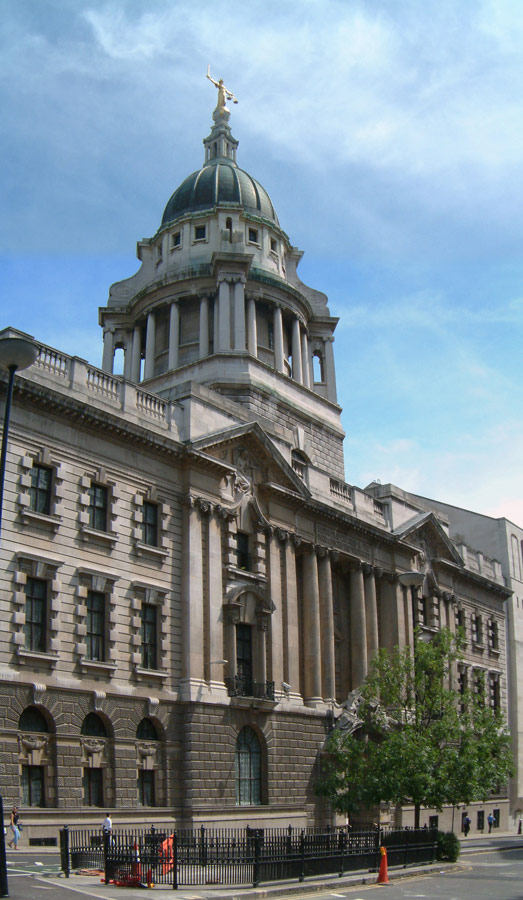
Following the Julian Assange case as it has progressed through its various stages, from the original Swedish allegations right up to and including the extradition hearing which is currently underway in the Central Criminal Court in London, has been a troubling and very strange experience.
The U.S. government has failed to present a coherent case.
Conscious that the British authorities should in theory refuse to extradite Assange if the case against him were shown to be politically motivated and/or related to Assange’s legitimate work as a journalist, the U.S. government has struggled to present a case against Assange which is not too obviously politically motivated or related to Assange’s legitimate work as a journalist.
This explains the strange succession of one original and two superseding indictments.
The U.S. government’s first indictment was based on what was a supposedly simple allegation of computer interference, supposedly coordinated in some sort of conspiracy between Assange and Chelsea Manning.
This was obviously done in an attempt to dispel the idea that the request for Assange’s extradition was politically motivated or was related to Assange’s legitimate work as a journalist.
However lawyers in the United States had no difficulty pointing out the “inchoate facts” of the alleged conspiracy between Assange and Manning, whilst both lawyers and journalists in the United States and elsewhere pointed out that the facts in the indictment in fact bore all the hallmarks of action by a journalist to protect a source.
Please Contribute to Consortium News’
25th Anniversary Fall Fund Drive
The result was that the U.S. government replaced its indictment with a first superseding indictment, which this time was founded largely on the 1917 Espionage Act, and was therefore closer to the real reasons why the case against Assange was being brought.
However, that made the case look altogether too obviously politically motivated, so it has in turn been replaced by a second superseding indictment, presented to the court and the defence team virtually on the eve of the trial, which has sought to veer back towards strictly criminal allegations, this time of involvement in computer hacking.
More Problems for Another Indictment
The allegations in the second superseding indictment have however faced major difficulties, in that they do not seem to concern the United States and may not even be actual crimes. Also they rely heavily on the evidence of a known fraudster, whose “evidence” is inherently unreliable.
The U.S. government has failed to make clear whether the additional allegations in the second superseding indictment are intended to constitute a separate standalone case. Initially they appeared to deny that they did; then they hinted that they might do; now however they seem to be acting as if they don’t.
As if that were not confusing enough, the U.S. government and its British lawyers have floated confusing and contradictory theories about whether or not the British authorities can extradite Assange even if the case against him is politically motivated, and even if it is related to his journalistic activities.
Initially they seemed to be arguing that — contrary to all British precedent and the actual text of the extradition treaty between the U.S. and Britain — Britain can in fact extradite Assange to the U.S. on a politically motivated charge, because the enabling Act which the British Parliament passed, which made the extradition treaty between the U.S. and Britain a part of British law, is silent on whether or not individuals can be extradited to the U.S. on a politically motivated charge.
This argument of course came close to conceding that the case against Assange is politically motivated after all.

Central Criminal Court in London, commonly known as Old Bailey, 2004. (Nevilley, Wikimedia Commons)
This threadbare argument, at least for the moment, seems to have been abandoned. At least nothing has been heard of it throughout the current hearing. Instead the U.S. government and its British lawyers have argued, in the face of the incredulity of a string of expert and factual witnesses, that the case is not politically motivated after all.
The same inconsistencies have beset the U.S. government’s arguments as to whether or not Assange is being charged under the Espionage Act for activities related to his work as a journalist.
Initially the U.S. government’s position was that he was not. This was based on some theory — never satisfactorily explained or articulated — that Assange in some way is not a journalist, even though he is charged with doing things that journalists do.
Faced by a barrage of expert witnesses who pointed out that the charges brought against Assange under the Espionage Act do in fact relate to work journalists do, the U.S. government midway through the hearing reversed course.
Now it says that the charges against Assange not only do relate to his work as a journalist, but that they can be brought against any journalist who does the things Assange is being charged with having done. The U.S. government has even argued that The New York Times would have been successfully prosecuted under the Espionage Act for publishing the Pentagon Papers, because that was an action essentially identical to the ones for which Assange is being charged.
The implications for journalists of this astonishing reversal are truly shocking. It is staggering that in the media it has attracted no attention.
Trouble with Witnesses…
